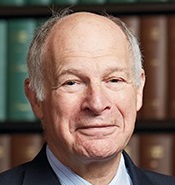FEATURE ARTICLE -
Issue 93: Sep 2023, Words From The Past
Primers on various scientific topics could be used across trials to avoid wasting time on debating basic points, argues David Neuberger in this article published in Nature on 1 March 2016 [1]
Testimony from expert witnesses — and I have heard a lot in my career as a judge — is a long-standing and important feature of legal proceedings. The scientists, engineers, inventors and technologists who offer their opinions in court are encouraged to agree on basic points before a trial begins. But they often do not agree as much as we hope. That tends to lengthen the time taken to cross-examine them, and contributes to justice being an expensive, drawn-out and stressful experience for all involved.
Better would be for courts to have a set of scientifically agreed principles that lay out the consensus opinion on some topics, and where there is reasonable doubt on others. Judges typically get such a primer when trying a patent dispute. Both sides allow their expert witnesses jointly to present points on which they agree, and which will not be disputed. This effectively sets a baseline for the ensuing arguments, which can still diverge significantly. These primers are useful, but only for specific cases. When the case they were prepared for is settled, the primer normally becomes redundant.
It’s not realistic for primers to be prepared individually for every case, but perhaps they could be created for topics that recur — and that are argued about each time. Scientific issues arise in a substantial number of cases, certainly enough to justify a primer that could be applied to many of them. These could be broken down into four themes. For example, forensic-science primers could detail how crime-scene samples can be matched to DNA profiles and how mixed profiles can be disentangled. Pure-science primers could explain how computer memories can be accessed and interpreted, and good-practice primers could lay out appropriate medical treatments and techniques. Scientific-method primers could set out the use and reliability of statistics.
From my experience, such primers would be hugely beneficial. They should set out the current generally accepted facts and opinion in each area, and be written as far as possible in accessible language (as all evidence in a court should be, but alas not always is).
Such primers would save money and time because the issues they detail would not realistically be open to challenge. They would also help in assessing the reliability of expert witnesses who give evidence on such issues, and they would increase the proportion of cases that are settled without a trial. The fact that opinions that are generally accepted in the scientific world sometimes turn out to be wrong is no barrier to this proposal. It is an inherent risk in giving and weighing up scientific evidence.
Primers would save money and time because the issues they detail would not realistically be open to challenge.
The legal process is not static, and courts are already working on new ways to test the evidence of expert witnesses. Many critics think that formal cross-examination risks the court favouring a more-fluent witness or a cleverer cross-examiner rather than the best evidence. One possibility, already being adopted as an alternative to cross-examination in some civil litigation, involves so-called concurrent evidence (or ‘hot-tubbing’ as it is colloquially known), in which the experts and lawyers sit around a table and discuss the issues at a relatively informal, if structured, meeting that is chaired and led by the judge. The scientific primers that I have suggested build on this approach.
How could they be prepared? It would require identifying areas of expertise in which a primer would be helpful and feasible, and then getting a group of acknowledged experts to formulate the guidance in that area. It would also, I think, be necessary for the group to monitor the primer, to take into account both how it is working and what advances are being made in the area.
This would involve the legal and scientific communities working closely together, which is already starting to happen. As part of broader discussions, I and other senior judges are talking to scientists and officials at the Royal Societies of London and Edinburgh on how they could help us to prepare primers. We hope to announce some progress soon.
The law has much to learn from science, in terms of both scientific thinking and discoveries and inventions. Scientific thinking is inevitably different from legal thinking — the idea of what constitutes proof and the role of common sense are two examples of divergence. But, given the importance of experience, logic and humanity in both spheres, legal and scientific thought have much in common as well.
As for scientific advances, they interrelate with law both specifically (patents, for example) and generally (DNA evidence). And, as scientific research improves our understanding of the brain and mental processes, science will have even more to offer the law on issues such as mental capacity, the extent of pain and the reliability of memory.
It is not a one-way relationship. As scientific discoveries and inventions continue to move into ethically controversial territory, the law will be able to provide a clear and robust framework to accommodate such developments. Two examples include the relationship between surveillance and privacy, and genetic engineering.
More broadly, lawyers and scientists who learn from each other’s expertise and experience can benefit society as a whole. Such a relationship of mutual cooperation is one of which I am sure that Francis Bacon, the remarkable jurist, scientist and essayist who died 390 years ago, would have wholeheartedly approved.
[1] Neuberger, D. Stop needless dispute of science in the courts. Nature 531, 9 (2016). https://doi.org/10.1038/531009a


